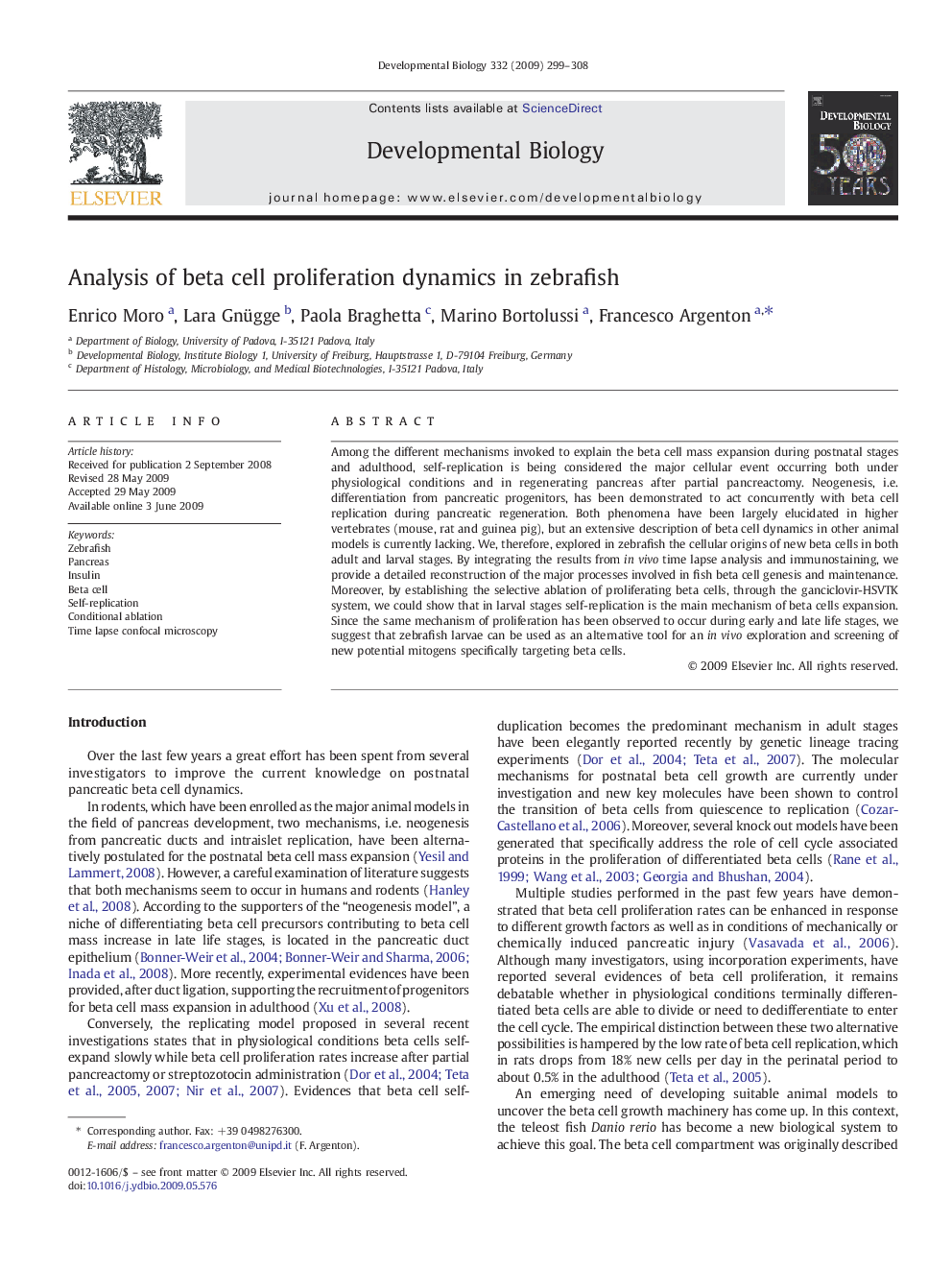| Article ID | Journal | Published Year | Pages | File Type |
|---|---|---|---|---|
| 2174117 | Developmental Biology | 2009 | 10 Pages |
Among the different mechanisms invoked to explain the beta cell mass expansion during postnatal stages and adulthood, self-replication is being considered the major cellular event occurring both under physiological conditions and in regenerating pancreas after partial pancreactomy. Neogenesis, i.e. differentiation from pancreatic progenitors, has been demonstrated to act concurrently with beta cell replication during pancreatic regeneration. Both phenomena have been largely elucidated in higher vertebrates (mouse, rat and guinea pig), but an extensive description of beta cell dynamics in other animal models is currently lacking. We, therefore, explored in zebrafish the cellular origins of new beta cells in both adult and larval stages. By integrating the results from in vivo time lapse analysis and immunostaining, we provide a detailed reconstruction of the major processes involved in fish beta cell genesis and maintenance. Moreover, by establishing the selective ablation of proliferating beta cells, through the ganciclovir-HSVTK system, we could show that in larval stages self-replication is the main mechanism of beta cells expansion.Since the same mechanism of proliferation has been observed to occur during early and late life stages, we suggest that zebrafish larvae can be used as an alternative tool for an in vivo exploration and screening of new potential mitogens specifically targeting beta cells.
